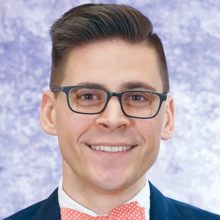Much can be said about the value of professional development, regardless of the profession. One of the most dynamic aspects of my profession is the chance to become a teacher leader. What does it take to become a teacher leader, though? Allow me to recount an anecdotal narrative.
Imagine for a moment: a professional development course that is designed as a year-long fellowship, partnering you with almost three dozen colleagues from across the state, who serve in similar capacities as you. You remain in your full-time classroom position while you participate. Tie this together with a 6-week externship with a local company and the opportunity to engage in leadership at the local and state level, with the ultimate goal of building leadership within each fellow. This is the Kenan Fellows Program.
To say that I was lucky to be selected to participate as a Kenan Fellow (2015/16 cohort) would be a drastic understatement. The opportunities that have stemmed from my participation in this program in the past three years alone, have been exponential for myself personally, and all have led to what one could say has been a molding of a teacher leader in the state of North Carolina. In particular, my participation in this program taught me about three crucial aspects that it takes to be a teacher leader here in North Carolina: design, develop, and advocate.
Design
As a part of the programs infrastructure, participants in Kenan Fellows kick off their summer months by engaging in a 6-week externship with a local business. Examples of businesses that have been past participants include: Google Fiber, NC Museum of Natural Sciences, the Charlotte Motor Speedway, Biogen, Caterpillar, Carowinds, and Cotton, Inc. (where I studied). Each teacher is given an opportunity to go behind-the-scenes of these companies, learning about what makes them tick, what their focus are, and often presented with hands-on learning experiences within the company. From there, teachers are asked to design curriculum based around their learnings, research, and experiences.
Prior to being in Kenan Fellows, I cannot adequately say that I truly believed that any company could have school-based curriculum that addressed the standards. But that is the beauty of the Kenan Fellow Program. I was challenged to partner with a company whose main product is cotton, and figure out a way to make it work within my own classroom as a base-model, that could then be applied to other classrooms across the state. Other teachers are challenged to design like this as well; to think outside of their comfort zones and boxes, and learn how the foundations that they lay in their classrooms can be applied to future-ready careers in STEM-based industries.
Develop
Leadership is not only about doing or creating, but it is also about learning. During my time in the Kenan Fellow Program, I received approximately 80 credit hours of professional development (PD). This development is intentional and specific to education, but it takes a larger look at the scope and inner-workings of education. During the time that the PD is provided, fellows in the program are granted the opportunity to meet with General Assembly members, discuss education research and policy with analysts in the field, and understand how policies and politics can, for better or worse, affect classrooms directly or indirectly.
The most critical aspect of the development of these teacher leaders, however, is the opportunity to invite their company mentors, whom they do their externships with, to several of these sessions. Speaking personally, this was a blessing of a challenge. This forced me to learn how to have the necessary conversations that are needed to bridge the gap between the classroom and the business sector. My own mentor at Cotton, Inc. and I engaged in many organic discussions about things that were happening in the education field. Many times, I recall my mentor expressing the sentiment that he forgot how much of what he learned in middle school affected what he would later come to do as a career. Being developed as a teacher leader has been critical, even post-fellowship, for myself as my conversations have continued beyond the classroom in both public and private sectors.
Advocate
Allow me to begin by stating that Kenan Fellows is not a political group, nor do they promote a specific political party. Prior to beginning my fellowship, I did very little in the way of advocacy outside of my classroom. It was not for lack of interest in expressing my opinions or wanting to hold those responsible; rather, it was due to a lack of knowledge of where to go, who to talk to, and how to approach doing this. Since my fellowship has ended, that no longer remains true.
Kenan Fellows helped me to understand what my role as a teacher leader was, which included advocating not only for myself, but for those across the state. More succinctly, I have been challenged to look at much of the data that our state invests in (School Report Cards, EVAAS Teacher data, General Assembly mandates) and to think critically outside of the box about how I could lend my voice to the greater cause of public education, and challenge those in seats of power to devote and invest time and resources into our educational landscape.



